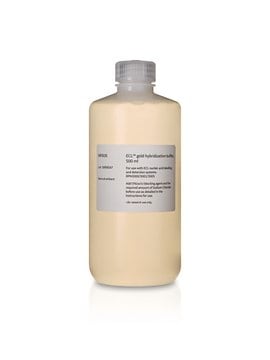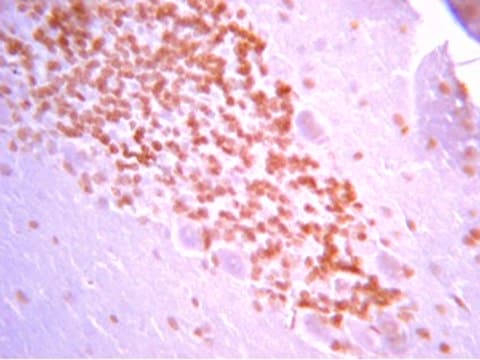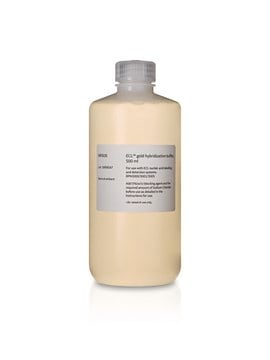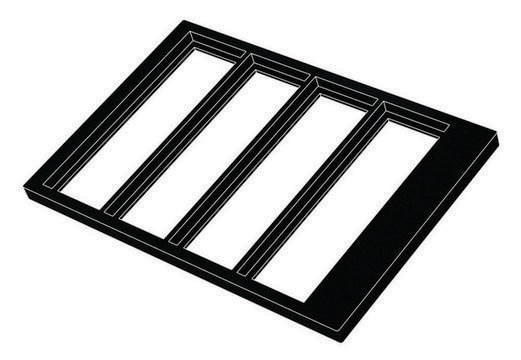GERPN3001
ECL™ Direct Nucleic Acid
Cytiva RPN3001, pack of 1 ea
Iniciar sesiónpara Ver la Fijación de precios por contrato y de la organización
About This Item
UNSPSC Code:
41105300
NACRES:
NA.31
Productos recomendados
packaging
pack of 1 ea
manufacturer/tradename
Cytiva RPN3001
storage temp.
2-8°C
Categorías relacionadas
General description
ECL™ Direct Labeling and Detection System.
Application
ECL™ Direct Nucleic Acid Labeling and Detection Systems are based on the direct labeling of DNA or RNA probes with horseradish peroxidase (HRP) in a simple 20 min chemical reaction. The resulting probe can be used without purification. Detection is achieved by generation of light via the HRP-catalyzed breakdown of luminol.
Each system includes the following reagents, sufficient for labeling 5 to 10 μg nucleic acid and detecting 2000 to 4000 cm2 of membrane (depending on product ordered): labeling reagent, crosslinker, control DNA, blocking agent, ECL™ Detection Reagents, and ECL™ Gold Hybridization Buffer.
Each system includes the following reagents, sufficient for labeling 5 to 10 μg nucleic acid and detecting 2000 to 4000 cm2 of membrane (depending on product ordered): labeling reagent, crosslinker, control DNA, blocking agent, ECL™ Detection Reagents, and ECL™ Gold Hybridization Buffer.
Features and Benefits
- Direct probe labeling in a 10 min reaction, 1 h from hybridization to detection with ECL™ Direct, Hybond® N+, and Hyperfilm ECL.
- Eliminates handling, waste, and regulatory issues associated with the use of radioactivity.
- No need to strip blots before reprobing.
- For fast and easy detection of medium- to high-target amounts in applications such as colony/plaque screens, dot blots, and PCR product analyses.
- Consistent results combining strong signals with very Low backgrounds.
Storage and Stability
Please be aware this product may be shipped 90 days before the expiration date. For more information on the batch specific expiration date, please contact technical service.
Analysis Note
To view the Certificate of Analysis for this product, please visit www.cytiva.com.
Legal Information
ECL is a trademark of Cytiva
Hybond is a registered trademark of Cytiva
Related product
Referencia del producto
Descripción
Precios
signalword
Danger
Storage Class
12 - Non Combustible Liquids
Certificados de análisis (COA)
Busque Certificados de análisis (COA) introduciendo el número de lote del producto. Los números de lote se encuentran en la etiqueta del producto después de las palabras «Lot» o «Batch»
¿Ya tiene este producto?
Encuentre la documentación para los productos que ha comprado recientemente en la Biblioteca de documentos.
Shin-Ichi Miyata et al.
Microbiology (Reading, England), 149(Pt 8), 2243-2250 (2003-08-09)
Thymidylate kinase (TMK) catalyses the phosphorylation of dTMP to form dTDP in both the de novo and salvage pathways of dTTP synthesis in both prokaryotes and eukaryotes. Two homologues of bacterial thymidylate kinase genes were identified in a genomic library
Senia Rosales et al.
BMC microbiology, 10, 208-208 (2010-08-04)
Tuberculosis persists as a public health problem in Honduras. A better knowledge of the molecular characteristics of Mycobacterium tuberculosis strains will contribute to understand the transmission dynamics of the disease within the country. The aim of this study was to
C Couturier et al.
Arteriosclerosis, thrombosis, and vascular biology, 20(12), 2559-2565 (2000-12-16)
Type II secreted phospholipase A(2) (sPLA(2)) releases precursors of important inflammatory lipid mediators from phospholipids. Some observations have indicated that the sPLA(2), which has been implicated in chronic inflammatory conditions such as arthritis, contributes to atherosclerosis in the arterial wall.
C Martins et al.
Genome, 44(5), 903-910 (2001-10-30)
To address understanding the organization of the 5S rRNA multigene family in the fish genome, the nucleotide sequence and organization array of 5S rDNA were investigated in the genus Leporinus, a representative freshwater fish group of South American fauna. PCR
C Couturier et al.
The Journal of biological chemistry, 274(33), 23085-23093 (1999-08-07)
Type II-secreted phospholipase A(2) (type II-sPLA(2)) is expressed in smooth muscle cells during atherosclerosis or in response to interleukin-1beta. The present study shows that the induction of type II-sPLA(2) gene by interleukin-1beta requires activation of the NFkappaB pathway and cytosolic
Artículos
Background and protocols describing the various methods used by molecular biologists to detect samples of protein or nucleic acids bound to membranes.
Nuestro equipo de científicos tiene experiencia en todas las áreas de investigación: Ciencias de la vida, Ciencia de los materiales, Síntesis química, Cromatografía, Analítica y muchas otras.
Póngase en contacto con el Servicio técnico









